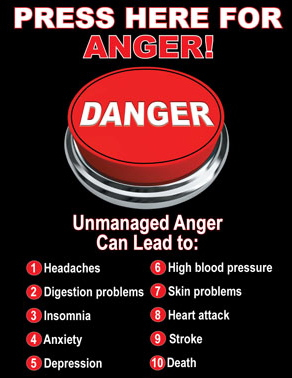If you’re angry, why are you pretending not to? Yes, yes, a lot of times you pretend and you don’t say no. On several occasions, we claim that we are not ashamed to keep appearances and that, besides hurting us a lot. much, gives other clues about what they can do to dominate us.
The real problem is that you don’t know how to channel your anger and you prefer to hide it, but sooner or later it will surface.
- If we don’t want to learn to control anger.
- It’s because it’s an emotion we don’t think about.
- Because we think it’s not with us.
- Or because we think we can control it.
- In addition.
- They often teach us that it must be avoided so as not to leave room for collateral damage around us.
This avoids highly toxic situations, but eliminating boredom altogether can have negative consequences. I encourage you to look together at the moments when anger should not be suppressed.
We tend to think of emotions as if they were abstract in relation to our physical body, as if the body were a container to contain them and a way of expressing them physically, it turns out that emotions manifest both physically and in our thoughts.
Contained anger can cause serious health problems that, although apparently unrelated, in fact are. Some of these problems are headaches, digestive problems, insomnia, increased anxiety, depression, high blood pressure, skin problems or heart problems (heart attack, tachycardia).
You have to find a way to free and express that anger, otherwise it will end with you.
Our emotions are stored when we don’t care about them, and this can cause them to leak out of control.
We may feel good at first because we managed to control a rage so as not to hurt or offend anyone, but soon?Probably? We will turn against other people (innocent or have nothing to do) because they pose a small threat. You have no intention of hurting them, but anger grows in you and can evaporate your self-control.
Repressed anger can also cause anxiety disorders, irrational fear, and anger. Emotion must go wherever it is.
Realizing that anger is part of us is an important first step, because then we can start setting healthy limits. Are we angry about something they do to others?Or is anger caused by a personal injury to our past around us?Is it insecurity on our part or does the other person treat us really badly?
Answers to these questions are discovered when we face our anger. This knowledge will give us the clarity we need to make good decisions about our relationships with others. We may have to step back and realize that others aren’t as bad as we are. Thought.
Even if people sometimes act with the intention of causing harm, the truth is that most of the time it is not so and there is no intention of stimulating our anger. And we know it. That’s why we suppress anger, and if we feel guilty about our anger, we can internalize it and blame ourselves, without addressing the real problem.
When we give ourselves the opportunity to be angry and analyze the motive behind us, we can become more aware of the cause, so that we can use the necessary tools to release the anger little by little and without causing further damage. doing a healthy exercise of self-control.
Just as repressed anger will make you feel bad, letting it go will be comforting, it’s like gaining a huge weight on your back. Living anger consciously is a completely different experience from denial.
This can help us get to know each other and understand why certain things make us angry.
It is not a question of living in a constant state of anger, but of not pretending that it does not exist, anger is a natural human emotion and we must give ourselves permission to live it, only in this way will we learn to express it in a healthy way and avoid, not only that we are not dominated, but that it does not appear.

